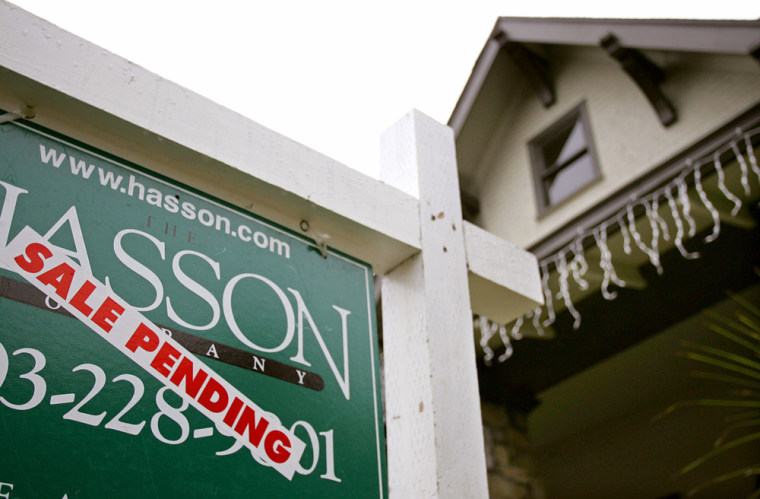Should you get out while the getting's good?
By now, we've all heard about people who have been buying and selling homes the way many Americans were trading stocks in the dot-com boom. Dramatic price increases, low interest rates, new mortgage products and (in some places) condo-building frenzies have provided substantial windfalls for some homeowners and real estate investors.
In general, there hasn't been a "bad" time to sell a home over the past few years — unless you count the fact that in hot areas, waiting an extra six or nine months could mean squeezing an extra 10 percent, 20 percent or even more out of a property. Last February, Jacky Teplitzky, a broker at New York-based Prudential Douglas Elliman, told us that the market was moving so fast that you couldn't price Manhattan homes based on what had sold — you had to look at what had just gone into contract.
Things have changed.
While predictions of a housing bubble have not been proven correct, there are plenty of indications that the U.S. housing market is shifting downward, and that the days of easy money in real estate are now in the rearview mirror.
On Jan. 10, the National Association of Realtors, a trade organization based in Washington, D.C., issued a forecast for 2006, saying that the housing market will "normalize" this year. For 2005, the nationwide appreciation rate for existing homes in the U.S. is pegged at around 13 percent. In some areas, values went up even more dramatically — prices for existing homes in the Phoenix-Mesa-Scottsdale metro area, for example, went up more than 55 percent from the third quarter of 2004 to the same period in 2005, according to NAR.
That's not expected to continue. NAR predicts that this year the housing market will stay strong, with the second-highest number of sales on record. But price appreciation will slow to just over 5 percent. And on Thursday, the Commerce Department said December U.S. housing starts were down 8.9 percent from the month before, and had declined 5.7 percent from a year earlier.
Inventory in the suburbs surrounding Boston is up more than 50 percent over January 2005, according to numbers just released by the MLS Property Information Network in Shrewsbury, Mass. In New York City, where residents have gotten used to extreme price increases, Manhattan prices showed "modest gains" in the fourth quarter of 2005, according to the market overview released by Prudential Douglas Elliman and real estate consulting firm Miller Samuel.
In several markets, brokers say that whereas sellers have been able to get what they ask (and more, when bidding wars come into play), these days buyers have more room to negotiate and ask for concessions from sellers.
Last year, Forbes.com looked at the best time to sell a home in different cities, based on when the real estate market is busiest in a particular area. (In many locales, spring is the most active time, but that doesn't hold true everywhere.)
This time, given a changing market, we took a different approach. We spoke to brokers in ten of the largest U.S. cities, from Boston to Houston to San Francisco. We asked them what a homeowner who is considering selling a home in the next six months should do — wait until the weather warms up and families are looking for houses for the next school year? Hang on and hope to get a little more appreciation out of the house? Or put a property on the market today, so as not to risk losing what you've gained?
The answers, as with so many things real estate-related, vary. In Houston, you can probably afford to dally. In Boston, "don't wait until there's even more competition," says Terry Maitland, a broker at LandVest, which deals in high-end New England homes.
